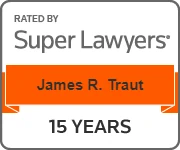Summary: California law entitles law enforcement officers to conduct stop-and-frisk (Terry stops) searches, but there are limitations to this power that can help strengthen your defense. Read on to learn more.
Stop-and-frisk laws — otherwise known as “Terry stops” in California and elsewhere — have come under fire in recent years due to increasing concerns among the general public that such rules allow law enforcement officers to abuse their powers and intrusively search passing pedestrians at their discretion. This stop-and-frisk power is not absolute, however. If you are detained and searched by a California law enforcement officer, you may (if the factual circumstances support your defense) be able to suppress evidence obtained during the Terry stop search of your person.
Understanding Terry Stops
There are two successive phases to a Terry stop: 1) where law enforcement officers detain you temporarily, and 2) where law enforcement searches your person.
It’s worth noting, however, that even if officers have cause to detain you, they may not have good cause to search you. In many cases, law enforcement officers will skip ahead to the “frisk” phase without being able to articulate a reasonable basis to believe that you are armed and dangerous. As such, you may be able to suppress evidence obtained from a stop-and-frisk search, even if the officer’s initial suspicions were sufficient to detain you in the first place.
Detainment Standards
In order to stop and detain you, a California law enforcement officer must be able to articulate a set of facts that lead to a reasonable suspicion that you have been engaged in — or will be engaged in — illegal activity. Reasonable suspicion requires that the officer has more than just a vague feeling that you are involved in illegal activity, but is a lower standard than probable cause. There are a number of different factors that may legitimately create a reasonable suspicion, including, but not limited, to: race and ethnic background if the officer is currently looking for a similarly defined suspect, activity that implies the commission of illegal acts (such as trying to escape from the presence of law enforcement officers), and presence close to the scene of a crime.
Search Standards
Once police have detained you, they are not necessarily entitled to frisk you or otherwise search your person. California law requires that a law enforcement officer have a reasonable belief (on the basis of articulable facts) that you are armed and immediately dangerous. During a Terry stop, the search is not meant to find evidence of illegal activity (i.e., searching for drugs), but is meant to secure weapons.
When police conduct a frisk search of your person to find hidden weapons, they may also find other illegal items, such as drugs and other contraband. If they discover these illegal items,
they can arrest and charge you for it. Though the search may not have been conducted for the purpose of discovering contraband, it can have that effect.
Even if the officer can articulate a reasonable, factual basis for considering you armed and dangerous, and subsequently searches you, there are limits on what they can search. Generally, California law enforcement officers may only search by patting down your outer layer of clothes. If they feel contraband, weapons, etc. below or inside this outer layer, however, then they are entitled to investigate further.
Some law enforcement officers may attempt to twist and stretch the rules in order to illegally search people that they suspect are carrying contraband. In such situations, it’s important to understand your rights and to consult with a criminal defense attorney who can attack the legitimacy of the search. If an officer conducts a Terry stop, searches you, and finds contraband on you, it is by no means an indefensible case. The officer may have overstepped their bounds and conducted an illegal search.











